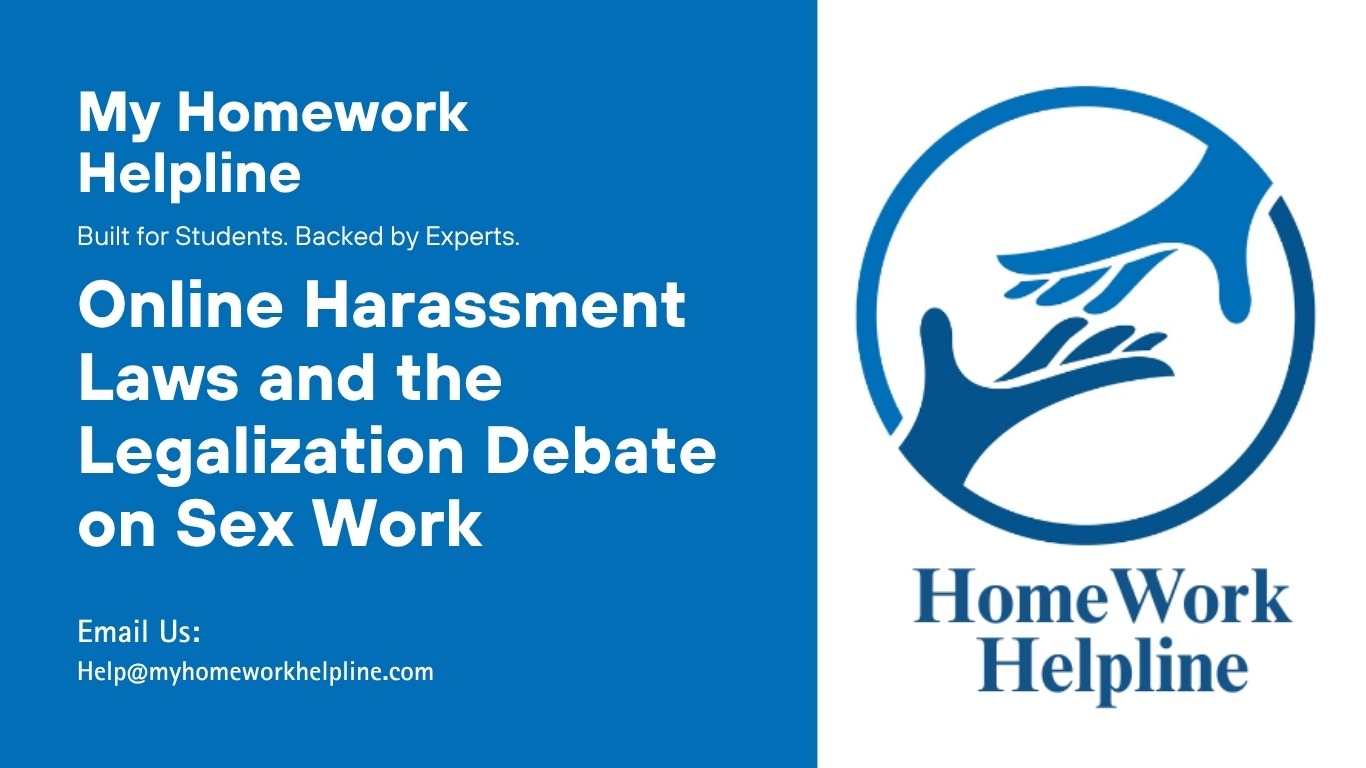The Debate on Criminalizing Online Harassment and Legalizing Sex Work
Criminal law is important for a country to keep its citizens safe. A behavior to be criminalized is online harassment which takes different forms such as cyberbullying, online impersonation, sextortion, and hate speech. While some of these actions may be considered crimes under federal and state laws, there are no specific laws that address specific online harassment actions such as cyberbullying (Samara et al., 2017). Some of the benefits of criminalizing online harassment include making the internet safer for people to share love, encouragement, and positivity rather than hate. Additionally, it will reduce the amount of mental health issues that people face due to cyberbullying. However, the downside is that banning cyberbullying does not change the bully positively, and thus, they will find other avenues to conduct their actions.
Struggling with law assignments on complex topics like online harassment or sex work legalization? Our Law Homework Helpline offers expert human tutors ready to help you understand and excel in your coursework. Get personalized, plagiarism-free support to boost your grades and confidence today!
A behavior to be legalized is sex work also known as prostitution which involves engaging in sexual conduct with another person for a fee. This behavior should be legalized because no one is harmed in the process and is a case of a willing buyer and willing seller due to the given consent. Additionally, sex workers use this way to get income rather than engage in robbery and violent activities. Therefore, legalizing it will reduce crime, increase taxes the government collects as it will be considered a revenue-generating activity, improve people’s standards of living, and make the world a safer place for sex workers. However, the downsides of legalizing it are increased cases of sexually transmitted infections, sex trafficking, and violent crimes like rape and homicide (Human Rights Watch, 2019). Raymond (2019) also cites that there is no way to make prostitution safe or control it legally, and thus, it should not be legalized.
References
Human Rights Watch. (2019, August 7). Why sex work should be decriminalized. Human Rights Watch. https://www.hrw.org/news/2019/08/07/why-sex-work-should-be-decriminalized
Raymond, J. G. (2019, September). Ten reasons for not legalizing prostitution and a legal response to the demand for prostitution. CATW International. https://catwinternational.org/wp-content/uploads/2019/09/Ten-Reasons-for-NOT-Legalizing-Prostitution.pdf
Samara, M., Burbidge, V., El Asam, A., Foody, M., Smith, P., & Morsi, H. (2017). Bullying and cyberbullying: Their legal status and use in psychological assessment. International Journal of Environmental Research and Public Health, 14(12), 1449. https://doi.org/10.3390/ijerph14121449

